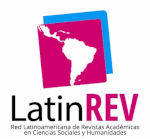Enslaved and "objectified". Angolan women in Xalapa, Veracruz, México, 17th Century
DOI:
https://doi.org/10.14295/rbhcs.v14i29.14516Keywords:
Slavery, Black women, Xalapa, Veracruz, New SpainAbstract
Between the fifteenth and nineteenth centuries, millions of African women were enslaved and transported to America against their will. The historiography of slavery and the slave trade in this period is extensive. Still, their stories are barely known, as they remain buried within the framework of historical phenomena considered fundamentally masculine. In recent decades, the influence of feminism in historical research and the growing interest in microhistory have promoted this type of research.This paper aims to approach the enslaved, “objectified”, and “commercialized” black women in Xalapa (Mexico) in 16th and 17th centuries, through the study of a group of these women called “angolas” mentioned in contemporary notarial documents and with the example of one of them. The results are a window into their personal and collective experiences and show their integration by force into New Spain society.
Downloads
References
AGUIRRE BELTRÁN, Gonzalo. The Slave Trade in Mexico. The Hispanic American Historical Review, 24(3), p. 412-431, 1944.
AGUIRRE BELTRÁN, Gonzalo. La población negra de México. Estudio etnohistórico (2ª ed.). México: SRA-CEHAM, 1981.
ALTHOUSE, Aaron P. Gregoria López (1680s): A Mexican Mulata Defends Her Honor. En: MAMIGONIAN, Beatriz G.; RACINE, Karen (Eds.). The Human Tradition in the Black Atlantic, 1500-2000. Lanham: Rowman & Littlefield, pp. 23-36, 2010.
AUTOR; AUTOR. 2020.
BAILEY, Anne C. African Voices of the Atlantic Slave Trade: Beyond the Silence and the Shame. Boston: Beacon Press, 2005.
BENNETT, Herman L. Africans in Colonial Mexico: Absolutism, Christianity, and Afro-Creole Consciousness, 1570-1640. Bloomington: Indiana University Press, 2003.
BERGER, Iris; WHITE, E. Frances. Women in Sub-Saharan Africa: Restoring Women to History. Bloomington and Indianapolis: Indiana University Press, 1999.
BERMÚDEZ GORROCHOTEGUI, Gilberto. Esclavos negros e ingenios azucareros en Jalapa: 1580-1640. La Palabra y el Hombre, 122, p. 117-125, 2002.
BERNAND, Carmen. Negros esclavos y libres en las ciudades hispanoamericanas. En: ANDRÉS-GALLEGO, José (Dir.). Tres grandes cuestiones de la historia de Iberoamérica: ensayos y monografías. Fundación Ignacio Larramendi-MAPFRE. [CD-ROM], 2000. Disponible en: https://www.larramendi.es/catalogo_imagenes/grupo.cmd?path=1000206. Acceso en: 20/07/2022.
BUSH, Bárbara. Slave Women in Caribbean Society, 1650-1838. Bloomington: Indiana University Press, 1990.
BUSH, Bárbara. 'Sable venus', 'she devil' or 'drudge'? British slavery and the 'fabulous fiction' of black women's identities, c. 1650-1838. Women's History Review, 9(4), p. 761-789, 2000. DOI: 10.1080/09612020000200262
CAMBA, Úrsula. Altanería, hermosura y prosperidad: reflexiones en torno a conductas de negras y mulatas (Siglos XVII–XVIII). En: NÚÑEZ, Fernanda; SPINOSO, Rosa María (Eds.). Mujeres en Veracruz: fragmentos de una historia. Xalapa: Gobierno del Estado de Veracruz, p. 13-25, 2012.
CAMPBELL, Gwyn; MIERS, Suzanne; MILLER, Joseph C. Women in western systems of slavery: Introduction. Slavery & Abolition: A Journal of Slave and Post-Slave Studies, 26(2), p. 161-179, 2005.
CARBY, Hazel V. White women listen! Black feminism and the boundaries of sisterhood. En: HENNESSY, Rosemary; INGRAHAM, Chrys (Eds.). Materialist Feminism: A Reader in Class, Difference, and Women's Lives. New York: Routledge, pp. 110-128, 1997.
CURTIN, Philip D. The Atlantic Slave Trade: A Census. Madison: The University of Wisconsin Press, 1969.
DAVIS, Ángela Y. Mujeres, raza y clase. Madrid: Akal, 2005.
DE LA SERNA, Juan Manuel. Negros, mulatos y pardos en la Historia de Veracruz. Arqueología mexicana: Las raíces africanas de México, 19(119), p. 52-57, 2013.
EBERT, Christopher. European Competition and Cooperation in Pre-Modern Globalization: "Portuguese" West and Central Africa, 1500-1600. African Economic History, 36, p. 53-78, 2008.
ELTIS, David. Metodología: Proporciones de edad y género (2010). En: SLAVEVOYAGES Slave Voyages: The Trans-Atlantic Slave Trade Database. 2022. Disponible en: https://www.slavevoyages.org/voyage/about#methodology/age-and-gender-ratios/16/es/. Acceso en: 20/07/2022.
ELTIS, David; ENGERMAN, Stanley L. Was the Slave Trade Dominated by Men? Journal of Interdisciplinary History, 23(2), p. 237-257, 1992.
ELTIS, David; ENGERMAN, Stanley L. Fluctuations in Sex and Age Ratios in the Transatlantic Slave Trade, 1663-1864. The Economic History Review, 46(2), p. 308-323, 1993.
FLORESCANO, Enrique. La Formación de los Trabajadores en la época colonial 1521-1750. En: FLORESCANO, Enrique et al., La clase obrera en la historia de México, de la Colonia al Imperio (7º ed.). México: Siglo XXI, p. 9-124, 1996.
FRIEDEMANN, Nina S. de. Huellas de africanía en Colombia. Thesaurus: boletín del Instituto Caro y Cuervo, 47(3), p. 543-560, 1992.
GARCÍA FUENTES, Lutgardo. El tráfico de negros hacia América. En: ANDRÉS-GALLEGO, José (Dir.). Tres grandes cuestiones de la historia de Iberoamérica: ensayos y monografías. Fundación Ignacio Larramendi-MAPFRE. [CD-ROM], 2005. Disponible en: http://www.larramendi.es/i18n/catalogo_imagenes/grupo.cmd?path=1000199. Acceso en: 20/07/2022.
GASPAR, David Barry; HINE, Darlene Clark (Eds.). Beyond Bondage: Free Women of Color in the Americas. Urbana: University of Illinois Press, 2004.
HARDING, Sandra G. The Science Question in Feminism. Ithaca: Cornell University Press, 1986.
HERSKOVITS, Melville J. Problem, Method and Theory in Afroamerican Studies. Phylon (1940-1956), 7(4), p. 337-354, 1946.
HOBBES, Thomas. De Cive. Madrid: Alianza Editorial, 2000 [1642].
INIKORI, Joseph E. The chaining of a continent: export demand for captives and the history of Africa south of the Sahara, 1450-1870. Kingston: Institute of Social and Economic Research, University of the West Indies, 1992a.
INIKORI, Joseph E. The Volume of the British Slave Trade, 1655-1807. Cahiers d’Etudes africaines, 32(128), p. 643-688, 1992b.
LA ROSA, Gabino. La Carimba o marca de fuego. Del Caribe 44, p. 111-116, 2004.
LAVRIN, Asunción. La mujer en la sociedad colonial hispanoamericana. En: BETHEL, Leslie (Ed.). Historia de América Latina, T. IV, Barcelona: Crítica, p. 109-137, 1990.
LOVEJOY, Paul E. Transformations in Slavery: A History of Slavery in Africa. Cambridge: Cambridge University Press, 2011.
LUCENA, Manuel. Leyes para esclavos: El ordenamiento jurídico sobre la condición, tratamiento, defensa y represión de los esclavos. En: ANDRÉS-GALLEGO, José (Dir.). Tres grandes cuestiones de la historia de Iberoamérica: ensayos y monografías. Fundación Ignacio Larramendi-MAPFRE. [CD-ROM]. 2000. Disponible en: http://www.larramendi.es/i18n/catalogo_imagenes/grupo.do?path=1000202. Acceso en: 20/07/2022.
KLEIN, Herbert S. Las características demográficas del comercio atlántico de esclavos hacia Latinoamérica. Boletín del Instituto de Historia Argentina y Americana «Dr. Emilio Ravignani», Tercera serie, núm. 8 (2º semestre), p. 7-27, 1993.
KLEIN, Herbert S. The Atlantic Slave Trade. Cambridge: Cambridge University Press, 1999.
KLEIN, Herbert S.; VINSON III, Ben. Historia mínima de la esclavitud en América Latina y el Caribe. México: El Colegio de México, 2013.
MADRID CRUZ, María Dolores. La Libertad y su Criada, la Esclavitud. Algunas Cartas de Compraventa y Libertad de Esclavos en el Madrid del Antiguo Régimen. Cuadernos de Historia del Derecho, vol. extraordinario, p. 277-302, 2010.
MANNING, Patrick. Migrations of Africans to the Americas: the impact on Africans, Africa, and the New World. The History Teacher, 26(3), p. 279-296, 1993.
MARTÍNEZ MONTIEL, Luz Mª. Culturas afrohispanas. Antecedentes y desarrollo. En: Andrés-Gallego, José (Dir.). Tres grandes cuestiones de la historia de Iberoamérica: ensayos y monografías. Fundación Ignacio Larramendi-MAPFRE. [CD-ROM] 2005. Disponible en: http://www.larramendi.es/es/catalogo_imagenes/grupo.do?path=1000204. Acceso en: 20/07/2022.
MONDRAGÓN, Lurdes. Esclavos africanos en la ciudad de México. El servicio doméstico durante el siglo XVI. México: Ediciones Euroamericanas, 1999.
NAVEDA, Adriana. Fuentes para el estudio de la población esclava en México. América Latina en la historia económica, 6(12), p. 93-102, 1999.
PALMER, Colin A. Slaves of the White God: Blacks in Mexico, 1570–1650. Cambridge: Harvard University Press, 1976.
PALMER, Colin A. From Africa to the Americas: Ethnicity in the Early Black Communities of the Americas. Journal of World History, 6(2), p. 223-236, 1995.
RAVEH, Adi. Measurement and correction of the tendency to round off age returns: a nonmetric technique. Genus, 37(1-2), p. 99-110, 1981.
SACCO, Nicolás. Sexo y edad en la experiencia censal moderna. Revista Latinoamericana de Metodología de la Investigación Social, nº 14, año 7, p. 65-96, 2017.
REDIKER, Marcus. The Slave Ship: A Human History. Harlow: Penguin Books, 2007.
RICHARDS, Audrey. Some Types of Family Structure Amongst the Central Bantu. En: RADCLIFFE-BROWN, Alfred Reginald; FORDE, Daryll (Eds.). African Systems of Kinship and Marriage. London: Oxford University Press, p. 207-251, 1950.
ROBERTSON, Claire; BERGER, Iris. Introduction: Analyzing Class and Gender - African Perspective. En: ROBERTSON, Claire; BERGER, Iris (Eds.). Women and Class in Africa. New York: Africana Pub. Co., p. 3-26, 1986.
RODRÍGUEZ ORTIZ, Guillermo Alberto. El comercio de esclavos africanos y afrodescendientes en Puebla (1595-1710). En: MARTÍNEZ PERIA, Juan Francisco; GHIDOLI, María de Lourdes (Comps.). Estudios Afrolatinoamericanos 2. Actas de las Cuartas Jornadas del GEALA. Buenos Aires: Ediciones del CCC Floreal Gorini, p. 79-88, 2015.
SANDOVAL, Alonso de, S. J. De instauranda aethiopum salute: El mundo de la esclavitud negra en América. Bogotá: Empresa Nacional de Publicaciones, 1956 [1627].
SCELLE, Georges. The Slave-Trade in the Spanish Colonies of America: The Assiento. The American Journal of International Law, 4(3), p. 612-661, 1910.
SCOTT, Joan W. Gender: A Useful Category of Historical Analysis. The American Historical Review, 91(5), p. 1053-1075, 1986.
SEIJAS, Tatiana; SIERRA, Pablo. The Persistence of the Slave Market in Seventeenth-Century Central Mexico. Slavery & Abolition, 37(2), p. 307-333, 2016.
SIERRA, Pablo M. Urban Slavery in Colonial Puebla de los Ángeles, 1536-1708. Tesis (Doctorado). University of California, Los Angeles. 2013. Disponible en: https://escholarship.org/uc/item/84k1z5fp. Acceso en: 20/07/2022.
SLAVEVOYAGES. Slave Voyages: The Trans-Atlantic Slave Trade Database. 2022. Disponible en: https://www.slavevoyages.org/. Acceso en: 20/07/2022.
TERRAZAS, Danielle. Polonia de Ribas, mulata y dueña de esclavos: una historia alternativa. Xalapa, siglo XVII. Ulúa, 19, p. 41-60, 2012.
TERRAZAS, Danielle. Capitalizing Subjects: Free African-Descended Women of Means in Xalapa, Veracruz during the Long Seventeenth Century. Tesis (Doctorado), Duke University, Durham, 2013. Disponible en: https://dukespace.lib.duke.edu/dspace/bitstream/handle/10161/7198/TerrazasWilliams_duke_0066D_11872.pdf. Acceso en: 20/07/2022.
TERRAZAS, Danielle. 'My conscience is free and clear': African-Descended Women, Status, and Slave Owning in Mid-Colonial Mexico. The Americas, 75(3), p. 524-554, 2018.
THOMAS, Hugh. La trata de esclavos. Historia del tráfico de seres humanos de 1440 a 1870. Barcelona: Ed. Planeta, 1998.
UNESCO. Compte rendu de la Réunion d'experts sur la traite négrière Port-au-Prince, Haïti 31 janvier - 4 février 1978. En: Histoire générale de l'Afrique. Études et documents. La traite négrière du XVe au XIXe siècle. Paris: UNESCO, p. 225-245, 1999.
VELASCO, virrey Luis de. Carta de Don Luis DE VELASCO, virey [sic] de Nueva España, al Emperador Don CARLOS... 4 de mayo de 1553. En: Cartas de Indias. Madrid: Ministerio de Fomento, (Imp. de Manuel G. Hernández), p. 263-268, 1877. Copia digital, Biblioteca de Andalucía. Disponible en: http://www.bibliotecavirtualdeandalucia.es/catalogo/es/catalogo_imagenes/grupo.cmd?path=195532. Acceso en: 20/07/2022.
VELÁZQUEZ, Mª Elisa. Mujeres de origen africano en la capital novohispana, siglos XVII y XVIII. México: UNAM, 2006.
VERLINDEN, Charles; VERICAT, Isabel. Cortés como empresario económico y la mano de obra esclava. Historia Mexicana, 38(4), p. 771-778, 1989.
VILA, Enriqueta. Hispanoamérica y el comercio de esclavos: los asientos portugueses. Sevilla: Escuela de Estudios Hispanoamericanos de Sevilla, 1977.
VINK, Markus. 'The World's Oldest Trade': Dutch Slavery and Slave Trade in the Indian Ocean in the Seventeenth Century. Journal of World History, 14(2), p. 131-177, 2003.
WALKER, Christine. Jamaica Ladies: Female Slaveholders and the Creation of Britain's Atlantic Empire. Chapel Hill: University of North Carolina Press, 2020.
WHEAT, David. Garcia Mendes Castelo Branco, fidalgo de Angola y mercader de esclavos en Veracruz y el Caribe a principios del siglo XVII. En: VELÁZQUEZ, Mª Elisa (Ed.). Debates históricos contemporáneos: africanos y afrodescendientes en México y Centroamérica. Centro de estudios mexicanos y centroamericanos, 2011. doi:10.4000/books.cemca.197
WILLIAMS, Eric. Capitalismo y esclavitud. Madrid: Ed. Traficantes de Sueños, 2011.
WOOD, Kirsten E. Gender and Slavery. En: SMITH, Mark M.; PAQUETTE, Robert L. (Eds.) The Oxford Handbook of Slavery in the Americas. Oxford: Oxford University Press, p. 513-534, 2010. Versión online: Sep 2012, DOI: 10.1093/oxfordhb/9780199227990.013.0024
WOOD, Betty. Black Women in the Early Americas. En: ELTIS, David; ENGERMAN, Stanley L. (Eds.). The Cambridge World History of Slavery. Cambridge: Cambridge University Press, p. 538-560, 2011.
Downloads
Published
How to Cite
Issue
Section
License
Copyright (c) 2023 Luis J. Abejez, Silvia María Méndez Maín

This work is licensed under a Creative Commons Attribution 4.0 International License.
Direitos Autorais
A submissão de originais para a Revista Brasileira de História & Ciências Sociais implica na transferência, pelos autores, dos direitos de publicação. Os direitos autorais para os artigos publicados nesta revista são do autor, com direitos da revista sobre a primeira publicação. Os autores somente poderão utilizar os mesmos resultados em outras publicações indicando claramente a Revista Brasileira de História & Ciências Sociais como o meio da publicação original.
Licença Creative Commons
Exceto onde especificado diferentemente, aplicam-se à matéria publicada neste periódico os termos de uma licença Creative Commons Atribuição 4.0 Internacional, que permite o uso irrestrito, a distribuição e a reprodução em qualquer meio desde que a publicação original seja corretamente citada.













